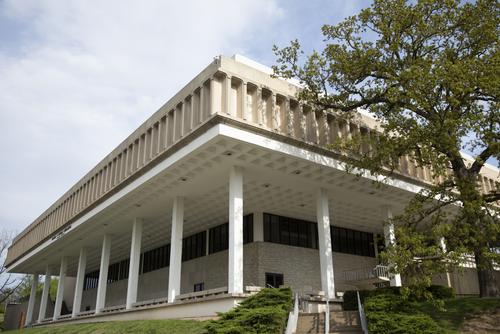Education Specialist in Counseling
Continue to main contentSpecialist in Education Counseling Degree Map
Explore the courses you'll need to complete your degree
Graduates of the Ed.S. in Counseling program are prepared to serve as professional counselors in school and community agency settings. There will be 3-6 credits of internship experience dependent on the program of study. High-quality, experienced, full-time faculty provide support, supervision, and mentorship throughout the program. In addition, the program helps accelerate post-graduate licensure.
Education Specialist Core
- CP733 Advanced Educational Processes (3)
- CP771 Counselor Supervision (3)
- CP788 Advanced Internship (6)
- GR799 Specialist Oral Examination (0)
Choose one course:
- CP691 Research Methods and Program Evaluation in Counseling (3)
- GR691 Methods of Research (3)
Counseling Core Required Prerequisites:
- CP610 Counseling Orientation & Ethics (3)
- CP611 Developmental Theories (3)
- CP612 Counseling Theories (3)
- CP613 Social & Cultural Aspects of Counseling (3)
- CP614 Counseling Skills (3)
- CP615 Career Development (3)
- CP616 Group Counseling (3)
- CP617 Assessment in Counseling (3)
- CP631 Crisis Intervention and Consultation (3)
- CP643 Psychodiagnostics and Treatment (3)
- CP680 Counseling Practicum (3)
- CP68X Internship (6)
Electives:
- CP630 Foundations of School Counseling (3)
- CP640 Foundations of Mental Health Counseling (3)
- CP641 Mental Health Systems (3)
- CP645 Marriage & Family Counseling (3)*
- CP652 Introduction to Play Therapy (3)*
- CP661 Addictions Counseling (3)
- CP664 Religion & Spirituality in Counseling (3)*
- CP735 Intelligence Testing (3)
- CP739 Testing Practicum (3)
- EA625 Foundations of Educational Leadership (3)
- EA651 School Law (3)
- EX601 Educational Assessment Techniques (3)
- EX635 Psychology & Education of Students with Special Needs (3)
*Recommended electives
All students must have a minimum, including the Master's, of 72 credit hours to graduate from the Educational Specialist program.
Transfer of Credits:
A student with regular admission status may transfer up to 48 of the 72 semester hours required for the specialist's degree from other regionally accredited institutions if the courses are a) appropriate, b) part of master's level work, c) on-campus courses, and d) approved by the student's advisor.If the student earned his/her master's degree from Southeast Missouri State University, up to nine semester hours of such work may be transferred from regionally accredited institutions. Transfer, workshop, and independent study credit may not exceed nine semester hours. The last 16 hours toward the specialist degree must be taken from Southeast or receive prior permission from the advisor. This is required for Southeast to act as certifying agency or endorse the student for certification or licensure
- 1. A graduate GPA of 3.5 or higher on a 4.0 scale
- 2. A master's degree in counseling or related field from a regionally accredited institution of higher education. If not, the student will be required to take additional graduate work (admission under provisional status) before regular admission is granted.
Probationary Admission
Probationary admission will be considered when the applicant presents a GPA that is less than 3.5 on a 4.0 scale. The admissions committee may permit the student to take nine hours in the program area. The student will be required to achieve a 3.66 GPA with a minimum grade of ‘B’ in each course.Full Admission
Applicants who possess the requisite GPA will be admitted to graduate study and allowed to complete a maximum of six semester hours of prerequisite coursework, if applicable. If no prerequisite courses are needed, the student may complete a maximum of six semester hours applicable to program requirements prior to admission to the program by the Counseling Admissions Committee. The Committee will act only on applications that are complete. The admissions process may require an interview with the program coordinator and faculty. In addition, two letters of recommendation must be submitted directly to the Specialist Program Coordinator.Denial of Admission
Applicants denied admission to graduate study based on a GPA of less than 3.5 on a 4.0 scale may apply for probationary admission. A letter of request, along with the three letters of recommendation and GRE or MAT scores should be sent to the Coordinator of the Specialist Program. Students denied admission may not enroll for coursework applicable to the degree program until such time as explicit permission, along with any stipulations, is granted by the Counseling Admissions Committee.Appeals Process
Applicants who are denied admission will have the opportunity to appeal to the Counseling Program Admission Committee. Appeals must be in writing and should address any extenuating circumstances.College of Education, Health and Human Studies
This degree is housed within the College of Education, Health and Human Studies. The college boasts programs that train students in mind, body, and soul. So, whether you want to teach, to care, to support, or to fix, we have a program to get you there.
Graduate Coordinators
Graduate coordinators serve as the contact for graduate programs. The coordinators are most often faculty within the college that houses the program, helping you to get questions answered and first-hand knowledge of the degree requirements and placement opportunities.
Become a Redhawk.
Do more than dream about the future. Take the first steps to make it all happen.
Getting the Job
Your education is just one piece to launching an extraordinary career. Once you’ve mastered the material, you still have to find the job you want, make the right connections, and sell your knowledge and experience—if all this is giving you anxiety, don’t panic. SEMO’s Career Services office is here to help you with the next step. Our boldly supportive faculty will provide the expertise and support you need, so you’re landing your dream job in no time.
Cape Girardeau, Missouri 63701



